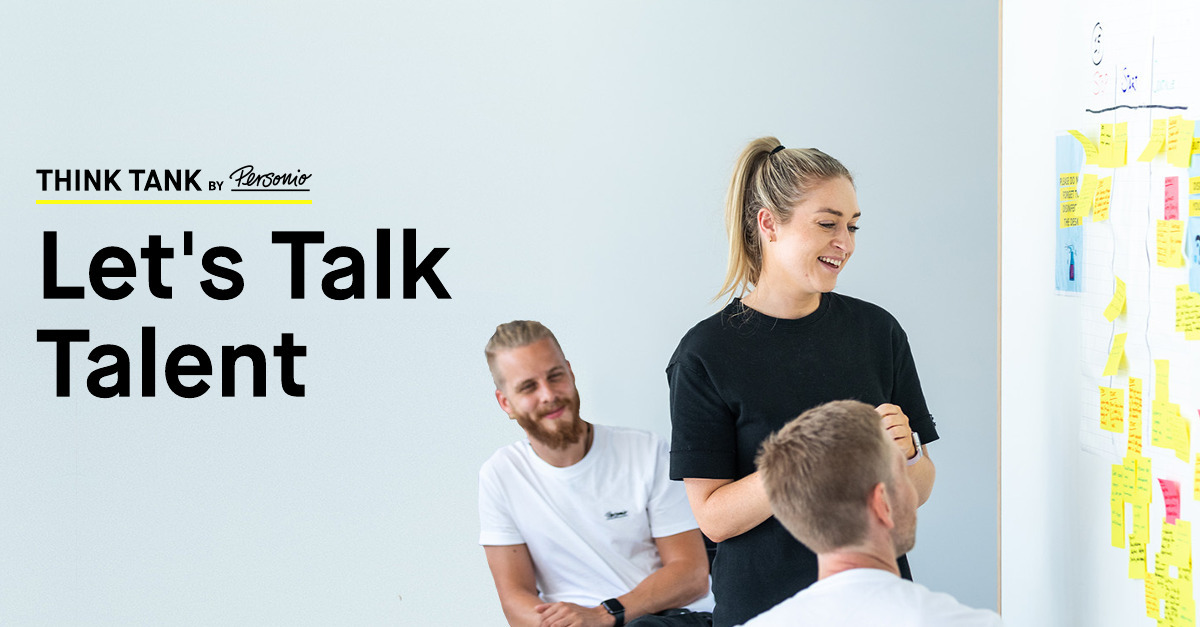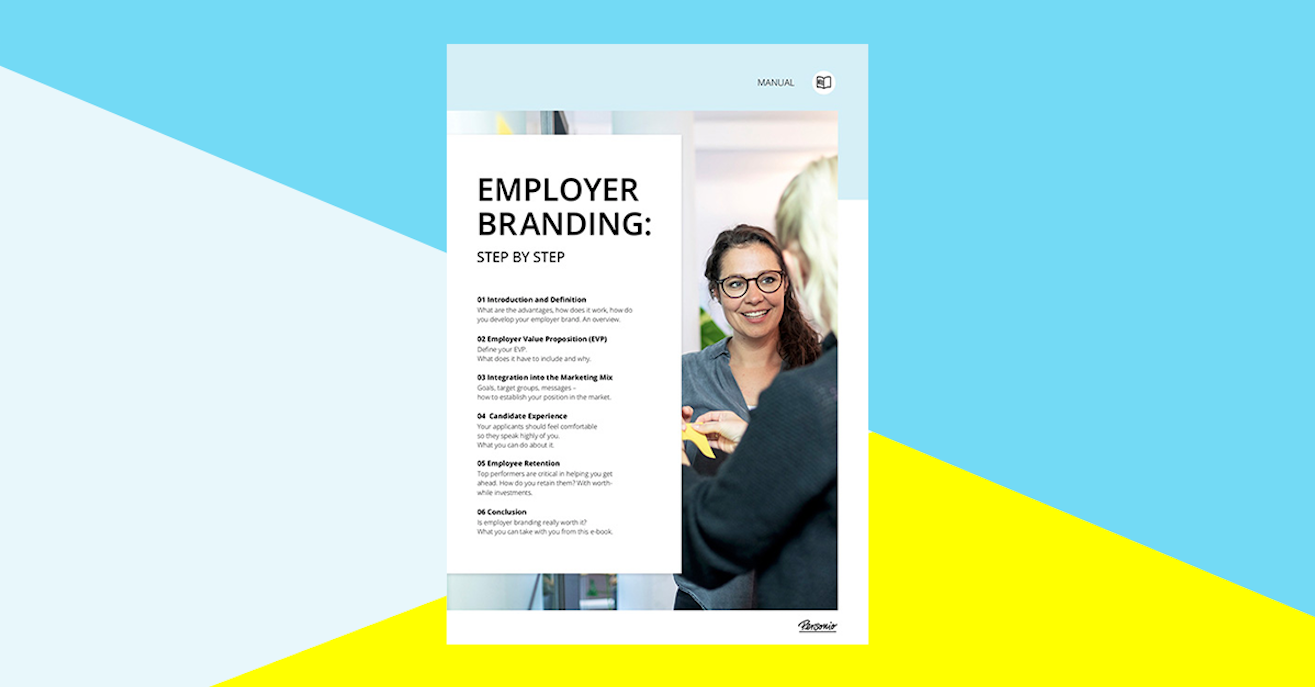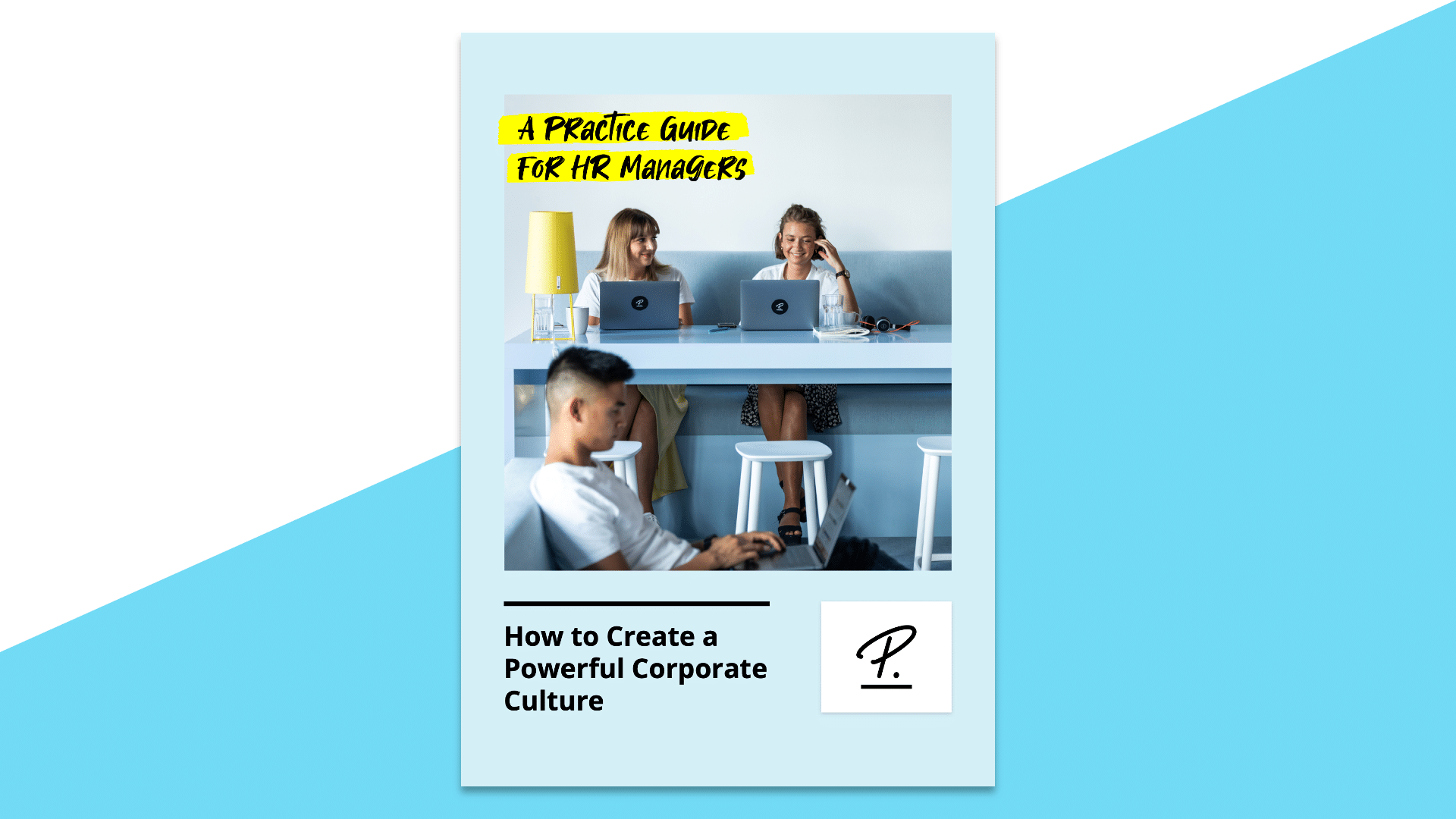25. February 2022
‘Culture Is Everything’: Personio’s Latest Think Thank

What's top of mind for HR leaders across Europe? Our team at Personio wanted to find out. So, we have introduced a series of Think Tanks to hear from organisations, and the people who lead their HR functions, about what’s currently challenging their work.
The result: Common obstacles, key insights and a host of solutions and takeaways to help combat pressing people problems. In our most recent Think Tank, we spoke to a group of dedicated Dutch HR experts. Here is what we learned…
Discover how Personio can help address your team’s challenges today.What is Personio’s Think Tank Series?
Our Think Tank series was built on the core idea of learning. Not only from our customers at Personio but from HR experts in the field. We see it as an opportunity to play host to a variety of experts, who can come together to share a host of ideas and solutions.
As a company with over 1,200 employees, and growing across five different offices, we also have a vested interest in these conversations. We want to share what we have learned, too, while also improving and creating solutions together.
So, our Think Tank series was born! We are taking various Think Tanks across Europe, where we talk about experiences, common challenges, best practices and how some of the best in the business are helping their people get better at what they do.
This time out, we gathered a group of professionals to talk around one subject that is on pretty much every HR professional’s mind: Talent.
What Common Challenges Came Up?
That leads us to our first point of discussion. Our Think Tanks kick off with an introduction from every HR professional in the room, followed by what is currently the biggest challenge that they are facing in their own work or at their organisation.
You may or may not be surprised at what became a very common refrain as we made our way around the (virtual) table: the current competition for talent.
So many challenges were either explicitly calling out this subject or were closely related to the fact that talent is a precious commodity right now – making it pivotal for organisations to attract, develop and retain their top performers.
That said, it wasn’t the end of our discussion – only the beginning. Some other challenges that came up in many people’s work included:
Developing a more visible/effective employer brand.
Recruiting for specialist/hard-to-fill roles in various departments.
Onboarding new talent in a fast-growing organisation.
Maintaining corporate culture during a period of hypergrowth.
Giving employees ownership of their own development.
Keeping your top talent around (retention).
Scaling HR operations to a more sophisticated level (from start-up to scale-up).
Succession planning and knowledge transfers between locations.
Finally, one of the main challenges continues to be modernising HR processes. This means taking things from an analogue space into a digital one and laying a proper foundation for growth in the future thanks to an upgraded HR function.
These challenges may feel familiar for you and your org’s HR team. What follows is the interactive portion of our Think Tank where we really got down to brass tacks and talked about how to tackle the above challenges.
Develop a More Visible Employer Brand Today

Download our Employer Branding eBook for the full story.
Download The eBook NowThink Tank Insights & Exchanges
If one of the core challenges for so many organisations was the idea of trying to win over talent, it’s no surprise that it came up time and again as the Think Tank session moved into a breakout room format.
Here is how that was expressed in terms of tangible tactics…
Employee Development
A topic that garnered a great deal of interest was development. Specifically, employee development and how it could drive retention while enabling better performance.
Career progression was the name of the game. Insights were shared into how to create job descriptions, role benchmarking and outlining responsibilities. Further to that, how to create a career progression framework that actually progresses employees in their roles.
An employee growth matrix was also discussed, wherein an org may outline a list of core competencies which would then feed into the next phase of one’s career.
Total Reward
The topic of talent also demands a conversation around total reward. One group noted how rewards mean very little unless you provide support – for instance, offering a development budget but then doubling down to help an employee figure out how to spend it.
Rewards and fringe benefits can be quite convincing in terms of talent attraction. But, gaining that level of investment from management is also important. Many felt that they also needed the budget to enable their people to take advantage of their own perks.
Culture at Scale
Growth presented itself as an issue for organisations of all kinds. But, the bigger topic baked into that revolved around culture. And, to what extent do you hold onto your core company culture, and how much do you let it "evolve” as you scale.
Many shared their ideas on how company core values can be a grounding factor for an international organisation. Or, how important it is to see trends over time from employee listening strategies (like pulse surveys or engagement surveys).
In one person’s opinion, it came down to how you review your culture, understand it and enable it to take root in a sustainable way. Everyone agreed that there is little you can do to “control” your culture, but a lot you can do when it comes to listening and reporting on it (to influence it).
Free Download: Our Guide to Corporate Culture

Download our guide to creating a more powerful corporate culture today.
Download The GuideWhat Key Takeaways Came About?
The Think Tank, even when spread across multiple rooms, really started to pull on some common threads, including:
Talent
The topic on just about everyone’s mind was talent. How to attract it, how to develop it and how to keep up with the competition for it. That last piece was the most salient – especially for fast-growing companies – because being able to attract talent fast really matters.
Some of the concrete tactics that emerged involved further investment in social media recruiting, referral programmes to drive attraction (or group sourcing “smashes” – sessions where teams actively source together) and generally working on your hiring processes to offer a more immersive candidate experience for talent.
The overall feeling on talent was that you need to make it an organisation-wide “team win” for everyone involved. Attracting great talent, and getting them on board, is critical, and for that reason, it should also feel like a celebration.
Culture
Most everyone agreed that the pandemic helped reveal the importance and intangibility of culture. It can be so hard to define, which is why early and repeat investments in it (through defining core values or large-scale “culture activations”) is so critical.
Then, finding systematic ways to assess culture (like partnering with technologies and running engagement surveys), as well as thinking about how culture can be augmented by hybrid working models – like exchange programs across offices – are on the minds of many.
Defining culture is one piece of the puzzle. Especially in a fast-moving organisation or one that grows based on acquisition, it becomes even more important to maintain and scale culture.
Development
The last major takeaway is something of a synthesis between the first two: developing your talent as part of a learning culture.
Getting your people to perform better will rely on two things: a stronger performance framework, outlining career progression as well as a distinct culture that emphasises the value of trying, failing, learning and succeeding.
Tactics discussed involved lowering the barrier of entry to learning opportunities, to try and build a baseline for learning before building out a larger, potentially-cumbersome program. In addition, making learning and development (L&D) part of the performance growth or evaluation process.
Development matters because it can drive both productivity and retention, making it a big talking point for the majority of the Think Tank.
Final Takeaway: Talent & Culture Go Hand in Hand
At the end of the day, the Think Tank was wrapped up on one common theme that everyone could agree on: Keeping culture as you grow is a challenge, but hiring for it, defining values to make it tangible and investing in it (through a culture of learning and development) can be the key to succeeding in the ‘Great Resignation’
From managing to developing, attracting and retaining talent, culture is key.
Our next Think Tank is coming sooner than later, and we can’t wait to continue sharing our insights from a host of HR experts with you. Thanks to all those who attended and also those who enjoyed the insights!
